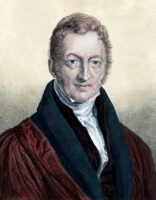
Variations drive evolution, theoretically. In Darwin Discovering the Tree of Life, evolution scientist Niles Eldredge at the American Museum of Natural History applied the V.I.S.T.A. acronym to explain Charles Darwin’s theory of natural selection. The “V” signifies variation followed by inheritance, selection, time, and adaptation, known as the five pillars of natural selection.
The selection of variations plays a pivotal role in driving Darwin’s theory of evolution. In the sixth edition of the Origin of Species, while “natural selection” appears 408 times, the term “variations” appear 303 times.
Darwin viewed natural selection as preserving “favourable variations” while eliminating others as the critical driver for the emergence of new species. Of the book’s fifteen chapters, the topic of variations is the primary subject in three chapters: Chapter I–Variation Under Domestication, Chapter II-Variation Under Nature, and Chapter V-Laws of Variation. According to Darwin –
“Natural selection can do nothing until favourable individual differences or variations occur.”
Natural selection, using a molecular analogy, acts as the catalyst, with variations acting as the substrate. To use a legal analogy –
“Susan’s family member is wrongfully imprisoned. She writes letters to her legislators, organizes protests and speaks to the media. Soon her family member is freed and the laws are changed to prevent someone else from being wrongfully imprisoned. Susan was the catalyst for change.”
Without variations acting as catalysts, natural selection is useless – variations drive evolution. Given the importance of variations driving evolution, what scientifically valid definition of variation did Darwin develop? He didn’t.
“At Once Struck Me”
Darwin’s interest in variations started while reading An Essay on the Principle of Population by Thomas Robert Malthus (pictured right), an English political economist. As Darwin recalls in his Autobiography –
“In October 1838 … I happened to read for amusement Malthus On Population… it at once struck me that under these circumstances favorable variations would tend to be preserved, and unfavorable ones to be destroyed. The result of this would be the formation of new species.”
Variations would eventually emerge to play a central role in Darwin’s theory. He continued, “I had, at last, got a theory by which to work.” By applying Malthus’ logic, Darwin argued that some variations reside inherently within each species, no new variations may be necessary –
“The amount of variation in the individuals of the same species is so great that it is no exaggeration to state that the varieties of the same species differ more from each other in the characters derived from these important organs, than do the species belonging to other distinct genera.”
Even though implying that the natural reserve of variations may be vast enough, Darwin also argued, “Natural selection can do nothing until favourable… variations occur” – blurring the explanations for new variations.
Defining Variations
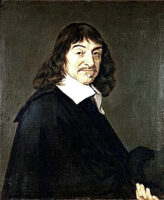 A distinct definition of a word is essential for understanding what it means, especially in the sciences. Otherwise, the word lacks clarity, potentially leading to misunderstandings. However, Darwin never developed a distinct definition for variations – for philosophical reasons. Of the more than two hundred terms included in the Glossary of Terms in the Origin of Species, amazingly, “variation” was not one of them; nor were these words from the book’s title: origin, species, means, natural selection, fittest, favoured races, inheritance, selection, and adaptation.
A distinct definition of a word is essential for understanding what it means, especially in the sciences. Otherwise, the word lacks clarity, potentially leading to misunderstandings. However, Darwin never developed a distinct definition for variations – for philosophical reasons. Of the more than two hundred terms included in the Glossary of Terms in the Origin of Species, amazingly, “variation” was not one of them; nor were these words from the book’s title: origin, species, means, natural selection, fittest, favoured races, inheritance, selection, and adaptation.
The popularity of this free-thinking Enlightenment writing style, as advocated by seventeenth-century French philosopher René Descartes (pictured left), re-emerged during the nineteenth century, as we will discuss further below. However, by examining how Darwin uses “variation” within the Origin of Species text, essential insights are given into his unwritten definition – beginning with his views of chance variations.
Chance
Chance and variations shape one of Darwin’s most challenging and conflicting intersections, especially since Darwin had varying views. In arguing against the role of chance in causing variations in color, Darwin noted –
“I was so convinced that not even a stripe of colour appears from what is commonly called chance.”
Painting a broader argument against the role of chance, Darwin explains –
“Mere chance … would never account for so habitual and large a degree of difference [variation] as that between the species of the same genus.”
In countering the argument against chance, Darwin (library pictured right) equates variations acted on by natural selection as analogous to “the works of a Creator” –
“In living bodies, variation will cause the slight alteration, generation will multiply them almost infinitely, and natural selection will pick out with unerring skill each improvement. Let this process go on for millions of years; and during each year on millions of individuals of many kinds; and may we not believe that a living optical instrument might thus be formed as superior to one of glass, as the works of the Creator are to those of man?”
In the first paragraph of Chapter V in the Origin of Species, Darwin addresses his varying views on chance, claiming “ignorance” –
“I HAVE hitherto sometimes spoken as if the variations…—were due to chance. This, of course, is a wholly incorrect expression, but it serves to acknowledge plainly our ignorance of the cause of each particular variation.”
With conflicting views over chance, Darwin’s definition of variations emerges as a vague, ambiguous, and confusing term; to which Darwin claims “ignorance,” once again –
“Our ignorance of the laws of variation is profound. Not in one case out of a hundred can we pretend to assign any reason why this or that part has varied.”
Switching gears, Darwin argues that nature has “no need” for new variations beyond “ordinary variability,” making the role of chance essentially a moot point –
“That species have a capacity for change will be admitted by all evolutionists, but there is no need, as it seems to me, to invoke any internal force beyond the tendency to ordinary variability, which… give rise by graduated steps to natural races or species.”
Behind Darwin’s conflicting chance explanations are the scientific terms never defined in the Origin of Species, including “internal force,” “ordinary variability,” and “natural races” – further blurring clarity.
Cause of New Variations
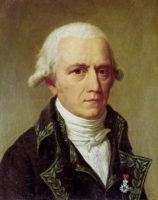 Seeming to overlook his conflicted concepts of “chance” and “no need” arguments, Darwin argued that changing “conditions of life” causes the emergence of new variations, some profitable by “chance” –
Seeming to overlook his conflicted concepts of “chance” and “no need” arguments, Darwin argued that changing “conditions of life” causes the emergence of new variations, some profitable by “chance” –
“We have good reason to believe, as shown in the first chapter, that changes in the conditions of life give a tendency to increased variability… affording a better chance of the occurrence of profitable variations.”
As the changing “conditions” causes variations to develop in “one part,” Darwin argued, these cause “other modifications” according to the “laws of correlation” –
“It is also necessary to bear in mind that, owing to the law of correlation, when one part varies and the variations are accumulated through natural selection, other modifications, often of the most unexpected nature, will ensue.”
Along with the “conditions of life” and the “law of correlation,” Darwin speculated that “correlated growth” also drives the emergence of new modifications –
“Variability is governed by many unknown laws, of which correlated growth is probably the most important.”
To the “conditions of life,” “law of correlation,” and “correlated growth,” Darwin explained that new variations developing in the young produce a transgenerational effect in the adult –
“One of the most obvious real cases is that variations of structure arising in the young or larvæ naturally tend to affect the structure of the mature animal.”
In extending the cause of variations further, Darwin included causes identified by French naturalist Jean-Baptiste Lamarck (pictured left) introduced decades earlier –
“On the whole, we may conclude that habit, or use and disuse, have, in some cases, played a considerable part in the modification of the constitution and structure.”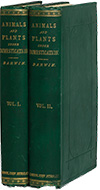
Even though explaining numerous times why nature has “no need” for new variations, Darwin eventually listed natural causes of the emergence of new variations, including natural selection, itself arguing –
“In one sense, the conditions of life may be said not only to cause variability, either directly or indirectly but likewise to include natural selection.”
Not only was Darwin conflicted, behind these explanations, Darwin used scientific terms that he had never defined. These include conditions of life, law of correlation, correlated growth, transgenerational effect, habit, use, disuse, constitution, and structure – further blurring what Darwin meant by “variations.” However, clarity in understanding variations is crucial since variations theoretically drive ongoing evolution. Darwin’s research, recognizing the importance of variations, led to the publication of four editions of a massively detailed two-volume set entitled Variation of Animals and Plants under Domestication beginning in 1868. However, long puzzled to define even the origins of variations, Darwin eventually conceded –
“We are far too ignorant to speculate on the relative importance of the several known and unknown causes of variation.”
Darwin’s Enlightenment Definition
To the question, how did Darwin define variations,” the answer is, despite copious explanations, he didn’t. Darwin never developed a distinct definition for variations in the Origin of Species or his subsequent works, including his volumes on Variation, nor their Glossary of Terms, leaving the meaning of variation vague and ambiguous.
Sometimes Darwin argued that variations occur by chance, sometimes not; sometimes new variations occur as needed, sometimes not. In explaining his copious causes of variation, like the “conditions of life” and “law of correlation,” none of these causes were defined, either. 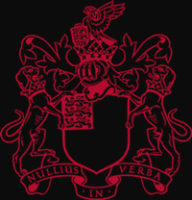 This vague and ambiguous writing style re-emerged in popularity during the nineteenth century, an approach Darwin adopted beginning with the Origin of Species.
This vague and ambiguous writing style re-emerged in popularity during the nineteenth century, an approach Darwin adopted beginning with the Origin of Species.
Citing science’s seeming lack of progress in answering the big questions, like evolution, Enlightenment philosophers encouraged naturalists to look beyond the scientific method developed by the Royal Society and apply the explanatory power of deductive reasoning. Enlightenment principles encouraged freedom of thought and individual liberty – over inductive reasoning. How Darwin embraced the Enlightenment movement is seen in a letter to American botanist Asa Gray in June 1857, more than a year before the publication of the Origin of Species, with Darwin acknowledging –
“I am quite conscious that my speculations run quite beyond the bounds of true science.”
The Royal Society and Darwin
The Royal Society, established in 1660 under the reign of King Charles II, instituted the principles of science known as the scientific method. Charles Darwin was elected as a member of the Society in 1839. The Society’s official motto, “Nullius in Verba” (see above), Latin for “take nobody’s word for it,” was commissioned with the stated purpose –
“To withstand the domination of authority and to verify all statements by an appeal to facts determined by experiment.”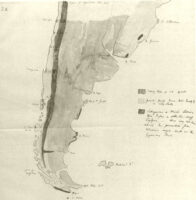
In 1846, Darwin was awarded the Royal Medal for his scientific achievements published in the Geological Observations on South America (pictured right), and again in 1851 for his publication Fossil Cirripedia of Great Britain, Section Lepadidae, Monograph of the Circhipeda. Notably, neither work inferred nor mentioned evolution. However, Darwin abandoned Society’s scientific principles for logical “arguments” beginning with the Origin of Species, published in 1859. The Society never again recognized any of Darwin’s works. Instead of referring to the Origin of Species as a “scientific treatise,” in Darwin’s words –
” This whole volume is one long argument.”
For an expanded understanding of why Darwin’s works on evolution were never considered scientific, click “The Royal Society and Darwin.”
Genesis
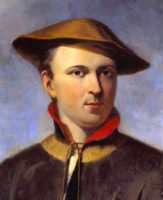 New variations drive ongoing evolution, theoretically, even though Darwin repeatedly acknowledged “ignorance.” The Genesis account written by Moses does not mention variations for one crucial reason: through spoken words, species emerged as distinct speciation events – not by “survival of the fittest” over millions of years.
New variations drive ongoing evolution, theoretically, even though Darwin repeatedly acknowledged “ignorance.” The Genesis account written by Moses does not mention variations for one crucial reason: through spoken words, species emerged as distinct speciation events – not by “survival of the fittest” over millions of years.
Carolus Linnaeus (1707-1778) (pictured left), a Swedish botanist, physician, and zoologist, is noted for formalizing the modern system of naming organisms called binomial nomenclature. Ironically, the Linnean Society of London, established in 1788, and named in Linnaeus’ honor, hosted the legendary joint reading of papers by Alfred Russel Wallace and Charles Darwin on the morning of June 18, 1858. Given his perspective, perhaps, Linnaeus even counted the irony a joy –
“I saw the infinite, all-knowing and all-powerful God from behind.… I followed His footsteps over nature’s fields and saw everywhere an eternal wisdom and power, an inscrutable perfection.”
Refer to the Glossary for the definition of terms and to Understanding Evolution for insights into how and why the investigative approach to examining the validity of evolution often results in vastly different conclusions.
V.I.S.T.A.
Variation drives evolution forward, theoretically, and is the first topic in the V.I.S.T.A. acronym developed by Niles Eldredge of the American Museum of Natural History to describe the mechanisms of natural selection Charles Darwin developed.
The V.I.S.T.A. acronym represents the five major topics of Darwin’s theory: variation (V), inheritance (I), selection (S), time (T), and adaptation (A). Explore Darwin’s original theory and how scientific evidence has prompted changes to his concepts since the publication of the last edition of the Origin of Species in 1872 using the following links –
V – Variation – (current page)
I – Inheritance
-
-
-
- Inheritance By Darwin
- Beyond Mendel – (under construction)
-
-
S – Selection – (under construction)
T – Time – (under construction)
A – Adaptation – (under construction)
Appendix – Darwin’s Glossary
Darwin did not write the Glossary in the Origin of Species. The glossary only appears in the Sixth Edition, starting on page 430. The complete title of the glossary is –
GLOSSARY OF THE PRINCIPAL SCIENTIFIC TERMS USED IN THE PRESENT VOLUME.*
The title’s suffix asterisk corresponds to the footer’s asterisk on page 430, stating –
“*I am indebted to the kindness of Mr. W. S. Dallas for this Glossary, which has been given because several readers have complained to me that some of the terms used were unintelligible to them. Mr. Dallas has endeavoured to give the explanations of the terms in as popular a form as possible.”
Darwin credits “Mr. W. S. Dallas” for writing the Glossary. – Darwin did not write the book’s Glossary.

